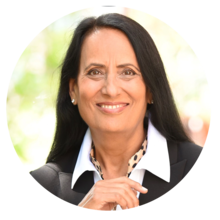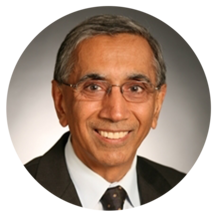About this Presentation
There is much discussion these days comparing millennials to baby boomers to generation X, Y and Z. Yes, these different cohorts grew up in different times which means some of them may share different attitudes and thinking BUT we are all people. There are things that drive people. Some of them are known and scientifically measurable, such as intelligence, the tendency to biases and personality. This webinar discusses what businesses can do for all their employees to create an environment in which their people’s performance soars. The approaches we will discuss in the webinar are designed to create a context where people are willing to make the enormous shifts in thinking required by Theory of Constraints’ counterintuitive directives and prescriptions. That willingness depends on trust. Where do we get that level of trust? Where indeed, especially given the current reality in which people work? We hear about corporate lay-offs, ‘right sizing,’ and terminations in the news every day. But worse are command-and-control, stopwatch driven, put up and shut up, demeaning, objectivizing and non-inclusive management styles. Appropriately, individual workers are subordinate to the company’s priorities. So, why should they ever trust their employer? That’s a question we will tackle. A hint of the direction of the solution is that every person can be 100% responsible for him or herself and to others. That suggests we cannot be responsible for others, only for ourselves. In other words, employees will decide if they want in. The only question is what can management do to create a context in which employees decide they are willing to change - that they trust enough to try it?
What Will You Learn
To help you get the most value from this session, we’ve highlighted a few key points. These takeaways capture the main ideas and practical insights from the presentation, making it easier for you to review, reflect, and apply what you’ve learned.

Paying a fair wage is a fundamental step in creating a collaborative organization. It's important to pay enough to take the issue of money off the table for employees.
Training employees on the Theory of Constraints (TOC) and other relevant areas is crucial. This helps employees understand their context and how their work contributes to the overall goals of the organization.
Giving employees some autonomy and ensuring that the job suits their personality and strengths can lead to higher job satisfaction and productivity. Employers should strive to match job roles with the individual personalities and strengths of their employees.
Instructor(s)
Henry Camp

Ms Alka Wadhwa
Alka Wadhwa is an experienced consultant and process improvement expert with over 24 years of expertise in the Theory of Constraints (TOC), Lean Six Sigma, and organizational performance optimization. She has successfully led projects in healthcare, financial services, and manufacturing, driving significant improvements such as a 67% boost in hospital operations and a 140% increase in outpatient visits.
Previously, Alka Wadhwa spent 17+ years at GE Global Research Center, where she led initiatives to enhance various GE businesses through advanced technologies, process redesign, and system optimization. Founder of Better Solutions Consulting, LLC, she specializes in using TOC, Six Sigma, and data analytics to streamline operations and build high-performance teams.
Her work has earned her multiple accolades, including the Empire State Award of Excellence in healthcare.

Dr Gary Wadhwa
Dr. Gary Wadhwa is a Board Certified Oral & Maxillofacial Surgeon with extensive experience in the field. He completed his Oral & Maxillofacial Surgery training at Montefiore Hospital, Albert Einstein College of Medicine in Bronx, NY, and has served as an Attending at prestigious institutions like St. Peters Hospitals, Ellis Hospital, and Beth Israel Hospital in NY. With a career spanning over two decades, he was the former CEO and President of a group specialty practice in NY from 1994 to 2015. Dr. Wadhwa holds an MBA from UT at Knoxville, TN, and has undergone additional training in System Dynamics at MIT, Health System Management at Harvard Business School, and Entrepreneurship and healthcare innovations at Columbia Business School. Committed to expanding access to Oral & Maxillofacial Surgery care, he is currently engaged in a meaningful project to provide healthcare services to underserved populations in inner city and rural areas through non-profit Community Health Centers.
